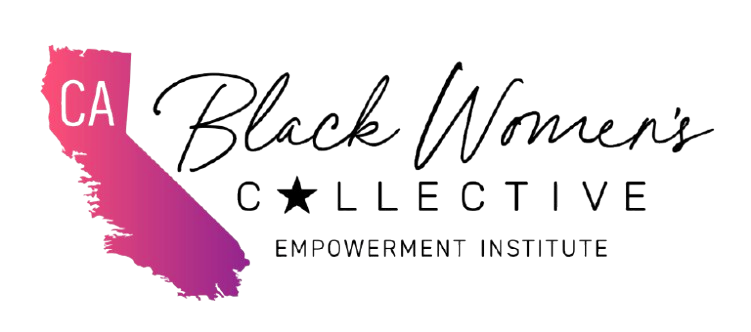key takeaway
Black women have helped propel California into becoming the fourth-largest economy in the world, yet Congressional proposals to cut essential programs like health coverage and nutrition assistance would disproportionately harm them. These cuts compound the systemic racism, economic inequality, and generational trauma Black women in California already face.
Access to affordable health care, child care, housing, and nutritious food is necessary for all Californians to thrive. However, right now, Congressional members, including some California representatives, are actively pushing for federal budget and policy proposals that would pave the way for deep and harmful cuts to programs that provide health coverage, nutrition assistance, and other essentials in part to fund huge tax giveaways for the wealthy. These cuts would be harmful for millions of vulnerable Californians who are already struggling to secure basic needs. Still, these proposals would be especially devastating for Black women in California who continuously face significant disparities in areas such as health, poverty, and unemployment due to historic and ongoing racism and sexism.

About This Report
This report was co-authored with the California Black Women’s Collective Empowerment Institute. The Institute is dedicated to uplifting Black women and girls; CABWCEI fosters strategic partnerships, amplifies voices, and drives systemic change to eliminate barriers and advance social and economic equity across California.
As the anchor organization for the California Black Women’s Think Tank at CSU Dominguez Hills, CABWCEI works to strengthen representation, mobilize collective influence, and advocate for policies that secure social and economic safety nets.
Black Women Are Crucial for California, But Have Endured Centuries of Racism
Black women are vital in lifting up their communities and creating a strong California. They have been at the forefront in fighting for their rights and the rights of all marginalized communities. Black women have helped propel California forward and into becoming the fourth-largest economy in the world. With Black women serving as the primary breadwinner in 80% of Black households, when Black women thrive, their communities thrive.
However, Black women have also been subjected to centuries of exploitation, racism, sexism, and systemic injustices in California. Between 1909 and 1979, the state implemented a eugenics program that led to the sterilization of over 20,000 individuals, disproportionately affecting women of color, and leaving lasting impacts on affected communities. Systemic discrimination also continues to affect Black women in the state, with a recent report by the California Black Women’s Collective Empowerment Institute finding that, as recently as 2024, over half of Black women experienced racism or discrimination at work.
Proposed federal funding cuts would continue to harm Black women. These cuts would force Black women to face impossible choices between working in order to support themselves and their families, being unpaid caregivers for their families and children, paying rent, and putting food on the table. For many Black women, programs like Medi-Cal, CalFresh, and federal housing assistance are the only way to access basic needs like health care, nutritious food, and safe housing. Cutting funding to these programs would worsen racial inequities and further increase the systemic barriers Black women and their families face that harm their ability to achieve economic security.
Key Terms
- Medi-Cal
- CalFresh
- CalWORKs (California Work Opportunity and Responsibility to Kids)
- SSI (Supplemental Security Income)
- WIC (Special Supplemental Nutrition Program for Women, Infants, and Children)
- Pell Grants
What Programs Are At Risk for Black Women in California?
Republican Congressional members are proposing cuts to vital programs that millions of Californians, including Black women, rely on. Black women have consistently been subjected to systems that undervalue them and create structural inequalities. These vital programs that are under threat are critical for supporting Black women and closing the disparities they face in all aspects of their lives, from health insurance to food assistance and education to child care.
Many critical safety net programs are facing potentially devastating cuts that would severely limit the ability of Black women to access crucial benefits. Instead of helping vulnerable families access basic needs, Congressional leaders prioritize spending that benefits profitable corporations and the wealthy.
Federal Threats to Medi-Cal Would Deepen Existing Health Inequities for Black Women
Millions of Black Californians rely on Medi-Cal, California’s Medicaid program, to stay healthy and access vital health services like primary care and mental health support.
- More than 1 in 3 Black women and children, or 35%, are covered by this program.
- However, Congressional Republicans’ proposed cuts to Medi-Cal threaten to take away access to this critical health care.
- Disparities in social determinants of health like economic stability and social environments, as well as historical inequities in health care access and care due to racism, have all contributed to Black women experiencing worse health outcomes than average for women in California.
- Black women also experience higher rates of poor health, lower life expectancy, and worse prenatal care.
Reliable and affordable health care is critical for Black women and children’s ability to take care of themselves and their families, and to thrive in California. Medi-Cal should be strengthened to better meet the needs of Black women, not cut.
Black Women Could Lose Access to Critical Nutrition and Income Assistance Programs
Many critical safety net programs are facing potentially devastating cuts that would severely limit the ability of Black women to access crucial benefits. CalFresh (or SNAP):
- Supports 47.3% of Black women in receiving food assistance; but
- Is at risk of losing $300 billion of federal funding and is vulnerable to proposals to offload the cost of this program onto the state.
WIC allows women and children to access a multitude of health, nutrition, and supportive services. In California:
- 47% of Black women participate in WIC;
- Only 66.5% of Black women receive adequate prenatal care; and
- WIC helps to ensure children are healthy, which is especially important given the percentage of Black women receiving adequate prenatal care is much lower than the state average of 73.4%.
In addition to food assistance programs, income assistance programs also provide Black women with crucial support in meeting their basic needs. The Supplemental Security Income (SSI) program primarily serves Californians with disabilities and adults 65 or older to ensure they have the income necessary to afford necessities. The SSI program:
- Supports over one quarter of Black women in California;
- Is critical for aging Black women in California, who face disproportionate health disparities, including frequent experiences of racism in healthcare settings and inadequate treatment for pain; and
- Also supports aging Black women who experience high rates of “kinlessness,” increasing vulnerability to social isolation and accelerated aging due to chronic exposure to systemic stressors.
SSI is critical to ensuring aging Black women can afford the care they need when they need it the most.
Another income assistance program is CalWORKs (or TANF), which provides crucial cash assistance to Black women across the state and is funded by federal and state dollars.
- Almost 20% of Black women in California receive CalWORKs benefits, demonstrating the importance of federal funding in supporting Black women who continuously face economic barriers due to decades of racial and gender discrimination.
Access to Low Cost Child Care is Crucial for Black Families
Child care is crucial for both parents and children in California so that children can grow and learn and parents can stay employed or continue their education to support themselves and their families. However, the high cost of this care threatens to push families, especially those headed by Black single moms, deeper into poverty.
A Black mother of three in South Los Angeles describes: “My youngest will start TK in the fall, marking her first time in school. Unlike my son and middle daughter, who both attended preschool, she didn’t because I couldn’t afford it this time around. Preschool costs increased from $600 for my son to nearly $800 for my daughter, and by the time my youngest arrived, it was close to $1,000 a month — something we just couldn’t manage.”
- Black single moms in California with an infant and school-age child spend over two thirds, or 67%, of their income on child care without access to a state subsidized program or Head Start.
- In California, the CalWORKs Stage 1 child care program provides subsidized child care to CalWORKs participants to help ease some of these high costs. In 2023, Stage 1 CalWORKs helped 9,509 Black children receive child care to support their growth and development.
- CalWORKs Stage 1 is funded (in part) through the federal TANF program, and threats to TANF at the federal level put Stage 1 child care funding at risk, which would have severe negative impacts on thousands of Black children and their families.
- Black children are disproportionately eligible for subsidized child care; therefore, when the supply of affordable child care is reduced (which may happen through cuts to TANF), Black families are more likely to be burdened.
Federal Programs That Allow More Black Women to Afford College Are Under Threat
All Black women in California pursuing higher education and career pathways should have access to an affordable education and the ability to achieve economic security. However, structural barriers in college readiness, access to college, and college completion for Black students have resulted in fewer Black women with at least a Bachelor’s degree than the state average. Almost 70% of Black women do not have a Bachelor’s degree, and for the 31% of Black women who do have one, federal support is key in being able to afford the high cost of higher education. However, the Trump administration’s active dismantling of the Department of Education threatens critical programs that make college possible for Black women in California.
One of the programs under threat is Pell Grants, which:
- Support approximately 32,000 Black women across the University of California, California State University, and California Community College systems.
- Provide on average an award of about $4,500 per year, which means that with tuition at a California State University institution currently at $6,084 per year, Pell Grants cover almost three-quarters of the cost of tuition.
- Are awarded mainly to families with an annual income of less than $20,000, meaning they provide significant aid in helping students attend college.
Without this federal support, going to college could become impossible for tens of thousands of Black women in the state, further entrenching disparities in the education system.
Black Women Disproportionately Face Housing Cost Burdens
Federal housing programs support 920,437 people across the state, but are still unable to meet the growing demand from Californians at risk of losing their homes. This means any cuts to federal housing programs would further jeopardize the stability of housing of Black women, who already face severe housing insecurity.
For Black women in California:
- Rent comprises almost 40% of their median annual earnings.
- 63% are rent burdened and 38% are severely rent burdened, which is higher than all other demographic groups.
- Since they are most likely to be renters, they have a greater chance of struggling with unaffordable housing costs and face increased vulnerability to financial crises, displacement, and homelessness.
Conclusion
The proposed federal budget cuts are not just financial decisions — they affect the daily lives of millions of vulnerable Californians who use these programs to access basic needs. With 2 out of 5 Black women just one paycheck away from instability, stripping away access to essential programs like Medi-Cal, CalFresh, CalWORKs, Pell Grants, and federal housing support would inflict disproportionate harm on Black women in California who are also already navigating the compounded weight of systemic racism, economic inequality, and generational trauma. When Black women — who are the backbone of their families and communities — lose access to health care, child care, housing, education, and food, the entire state suffers. To ensure a just and thriving California, we must protect and expand these lifeline programs, not dismantle them. The path to economic justice, racial equity, and community well-being begins with investing in Black women. Anything less is a betrayal of the values we claim to uphold.
Policy Recommendations for Black Women in California
Legislative Proposals:
Protect and Expand State-Funded Child Care for Working Black Mothers by prioritizing funding in the California Budget Act for the CalWORKs Stage 1 and Alternative Payment (AP) childcare programs, with an equity lens to ensure Black families at or near the poverty line are not waitlisted or displaced by funding cuts.
- Justification: Black single mothers in California spend over 67% of income on child care without subsidies.
- Budget-conscious solution: Reallocate existing child care infrastructure dollars and target enrollment protections for the most vulnerable families.
- Equity tool: Direct the CA Department of Social Services to issue emergency guidance prioritizing Black households disproportionately affected by child care inaccessibility.
Codify a Racial Equity Impact Assessment Requirement for budget and safety net changes by introducing legislation requiring all proposed budget adjustments and program cuts to undergo a Racial and Gender Equity Impact Review — specifically assessing harm to Black women and families.
- Justification: Cuts to Medi-Cal, TANF, and Pell Grants disproportionately impact Black women.
- Feasibility: Modeled after existing equity assessment tools used in San Francisco, Oakland, and at the federal level.
- Outcome: Creates transparency and accountability without significant cost — empowering legislative committees and budget staff with equity data before decisions are finalized.
Non-Legislative Proposal:
Launch a Public-Private Partnership to Sustain Food & Housing Security for Black Women. For instance, create a Black Women’s Stability Relief Fund in partnership with philanthropy and corporations (e.g., Kaiser Permanente, Wells Fargo Foundation) to support food, rental, and emergency cash aid for Black women-headed households impacted by federal cuts to CalFresh, WIC, and housing programs.
- Justification: Nearly 47% of Black women rely on CalFresh; over 63% are rent-burdened.
- Low-cost to state: State provides administrative infrastructure through existing county-level human services, with funding driven by philanthropic partners and local employer tax credits.
- Model: Use Los Angeles County’s Guaranteed Income Pilot or United Way’s Rent Relief Fund as templates.
Kellie Todd Griffin is the founding president and CEO of the California Black Women’s Collective Empowerment Institute.




